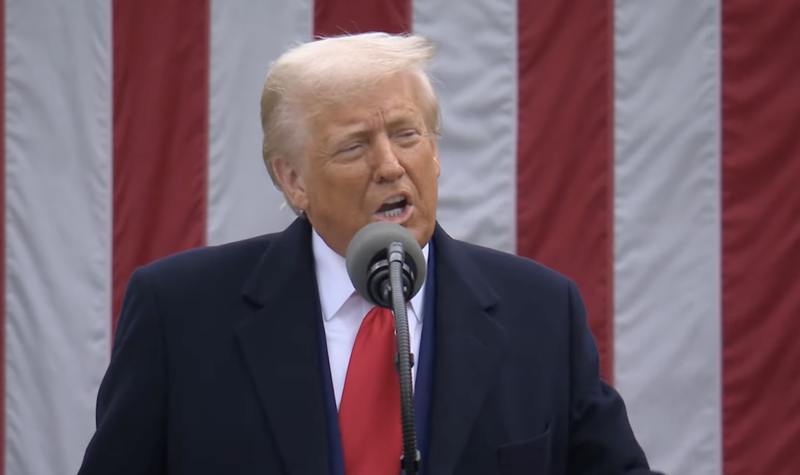Stocks rebounded Tuesday as the White House and President Donald Trump touted progress on trade deals amid a 90-day pause on the president’s slate of reciprocal tariffs on foreign nations.
Trump announced the tariffs on April 2, leading to a major stock market tumble. Markets rallied on April 9 when Trump paused the higher tariffs for 90 days, but big swings in either direction followed. Stocks plummeted Monday before Tuesday’s rebound.
The Dow Jones industrials climbed 2.6%, the S&P 500 ended up 2.5% higher and the Nasdaq gained 2.7%.
The market rally came as Trump and the White House announced progress on trade deals. White House press secretary Karoline Leavitt said Tuesday that 18 nations have trade proposals on paper, up from 15 nations last week. Trump also said Tuesday that he expects to reach a trade deal with China, the world’s second-largest economy. Trump hasn’t disclosed details of any of the pending trade agreements. The president also hasn’t tipped his hand on what a deal with China could look like.
“We’re doing really well, I see the stock market was up nicely, but this is a transition period and it’s going to be a little while,” Trump said Tuesday after U.S. markets closed for the day. “But we are doing well with every country. Ultimately, we have something they want.”
Trump said he has no plans to take an aggressive approach to reaching a deal with China. Trump hit Beijing with 145% tariffs after China retaliated with tariffs on U.S. products. China has punched back, putting 125% tariffs on U.S. goods, a level that it says is high enough to stop all trade between the two largest economies.
“No, no. We are going to be very nice, they’re going to be very nice,” Trump said. “And we’ll see what happens, but ultimately, they have to make a deal because otherwise they’re not going to be able to deal in the United States.”
Trump has promised tariffs will make the U.S. wealthy, bring back manufacturing jobs lost to lower-wage countries in decades past, and shift the tax burden away from U.S. families.
A tariff is a tax on imported goods. The importer pays the tax and can either absorb the loss or pass the cost on to consumers in the form of higher prices.
Critics argue the tariffs will hurt the economy and the nation’s trading relationships abroad and that costs will be passed on to American consumers. Trump and his backers have said tariffs would cause temporary pain but would also lead to a new wave of domestic manufacturing and raise federal revenue.







